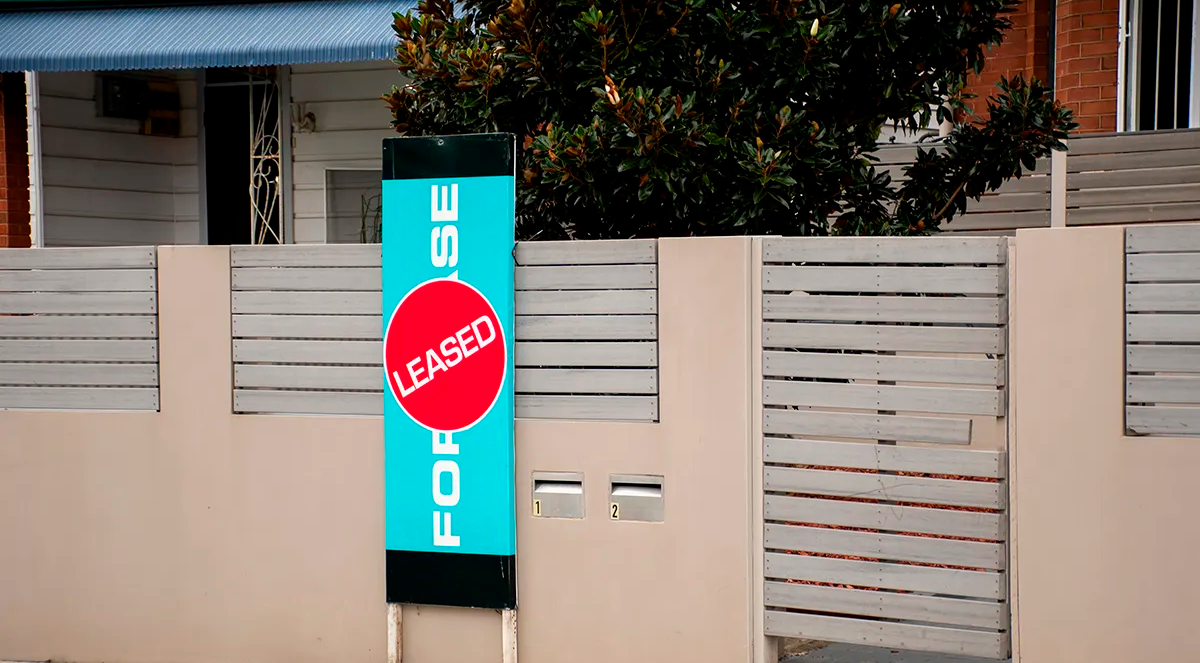Features > Property Education > Financial Advice
Using Home Equity to Invest in Property: A Smart Financial Move

People want to invest in property for many reasons, but one common goal often comes up – to achieve financial freedom.
Investment properties can provide wealth through rental income and capital growth, and are an effective way of creating passive income.
But the avenue to property ownership can be blocked by hurdles for some, with the requirement of large deposits often needed to secure a property.
That’s where your existing home can help.
Homeowners can use their existing dwellings, and tap into their equity to secure property, through multiple different avenues.
This is called leverage, and it helps successful investors build property portfolios that allow them to secure their financial future.
Here are three common avenues homeowners can use to tap into their equity when making an investment purchase.
Home loan top-up
A home loan top-up allows homeowners to take out additional funds on top of their home loan, to use in the form of cash, as a deposit. As Westpac writes, this is one of the most common ways to tap into equity.
Homeowners will need to apply to their banks for a home loan top-up, and will also have to prove that there is equity in the home. This is done by having the home valued, and calculating the usable equity in a home.
Usable equity is the equity a homeowner can actually leverage to borrow against. It’s calculated by subtracting the remainder of the money owed on a mortgage from 80 percent of the current value of the home.
Homeowners can elect to take out the value of this equity as additional funds on their home loan to cover the deposit on an investment property, but should be wary that their primary and interest payments will increase.
Using a loan repayment calculator can help to show what the new repayments would be.
It does however allow homeowners to continue investing without the need to save years for a home deposit, freeing up cash flow, and potentially positioning them to enjoy even more equity in the future.
Cross-collaterisation
Cross-collaterisation involves utilising an existing property as a security in a new home loan for an investment property. But this can make things complicated.
It means tying the two properties up on the same home loan, which can present some additional work if an investor wants to sell a property.
It’s not an outright drawback, simply a lengthier administration process if things change.
There are some upsides to cross-collaterisation especially for investors starting out on their investment journey.
Tax affairs can benefit from cross-collaterisation and so can repayments, with lower interest rates on offer as cross-collaterisation allows homeowners to add their investment properties to their owner-occupier home loan.
This is subject to individual lenders and their approval process, so make sure to chat with your bank first.
Tax deductions can apply to 100 percent of the purchase price in some cases too, as the property is purchased with finance and the security of an existing home, rather than funding a portion with cash in the form of a deposit. This is also subject to individual circumstances, so chatting to a tax agent prior to any purchases is important.
Refinancing or taking out a new loan
Refinancing could be considered one of the simplest ways of leveraging equity to buy an investment property, because it involves taking out a new loan.
And that new loan can be separate to an existing home loan on the initial property.
The upsides of refinancing means you can also select a loan that offers different features, repayment options and loan terms that specifically suit your investment needs.
Investment needs often differ greatly from residential needs, so this option allows you flexibility to set up your loan in a way that will help with cash flow, and meet the unique requirements of an investment property.
Why leverage equity to build a property portfolio?
It sounds complicated but a good strategist can help take the confusion out of investing, and help to set you up for life.
Leveraging equity means investors can expand their property portfolios without hampering cash flow just to save a deposit, while also benefiting from rental income and capital growth.
It’s a way of making your own wealth work harder for you. If your initial investment has built equity, why not replicate and implement that same strategy again, to potentially generate double the equity?
The truth is this – if you want to generate a passive income through a property portfolio, multiple properties are needed, especially if it’s a retirement strategy. And the way to do this is through leveraging equity.
To get started on your investment journey today, or to discuss accessing your equity to expand your portfolio, book a strategy session with a Freedom consultant.
This article is general in nature. Readers should always seek their own professional advice that takes into account their own personal circumstances before making any financial decisions.
Stay Up to Date
with the Latest Australian Property News, Insights & Education.




.png?width=292&height=292&name=Copy%20Link%20(1).png)
 SIGN UP FOR FREE NEWSLETTER
SIGN UP FOR FREE NEWSLETTER


.png)







%20Scott%20Kuru%20DPU%20150.jpg?width=1920&height=1080&name=BREAKING%20Senate%20Hearing%20Proves%20They%20Deliberately%20Inflated%20House%20Prices%20(This%20Wasnt%20an%20Accident)%20Scott%20Kuru%20DPU%20150.jpg)
.jpg?width=1920&height=1080&name=WARNING%20Australia%E2%80%99s%20High%20Debt%20Levels%20Could%20Collapse%20the%20Economy%20-%20Are%20We%20Headed%20for%20Bankruptcy%20Scott%20Kuru%20DPU%20149%20(1).jpg)
%20Scott%20Kuru%20DPU%20148.jpg?width=1920&height=1080&name=Australia%20Is%20on%20the%20Brink%20of%20History%E2%80%99s%20Worst%20Mortgage%20Default%20Crisis%20(Housing%20Crash%20Inevitable)%20Scott%20Kuru%20DPU%20148.jpg)
%20Scott%20Kuru%20DPU%20147.jpg?width=1920&height=1080&name=RBA%20Warns%20Inflation%20Has%20Pushed%20Australia%20Into%20Household%20Recession%20(Millions%20Face%20Pay%20Cuts%20in%202026)%20Scott%20Kuru%20DPU%20147.jpg)
%20Scott%20Kuru%20DPU%20145.jpg?width=1920&height=1080&name=Senate%20Inquiry%20Forced%20the%20RBA%20to%20Admit%20the%20Housing%20Crisis%20Will%20Never%20Be%20Fixed%20(It%20Was%20All%20a%20Lie)%20Scott%20Kuru%20DPU%20145.jpg)



%20Scott%20Kuru%20DPU%20141.jpg?width=1920&height=1080&name=The%20Senate%20Just%20Exposed%20Australias%20Biggest%20$80%20Billion%20Housing%20Fraud%20(Inquiry%20Launched)%20Scott%20Kuru%20DPU%20141.jpg)




%20Scott%20Kuru%20DPU136.jpg?width=1920&height=1080&name=Aussies%20Just%20Got%20Hit%20With%20Double%20Taxes%20on%20Everything%20(This%20Has%20Gone%20Too%20Far)%20Scott%20Kuru%20DPU136.jpg)


%20Scott%20Kuru%20DPU%20133.jpg?width=1920&height=1080&name=JUST%20IN%20Something%20Major%20Just%20Flipped%20Australia%E2%80%99s%20Property%20Market%20for%202026%20(No%20One%20Saw%20This%20Coming)%20Scott%20Kuru%20DPU%20133.jpg)


.jpg?width=1920&height=1080&name=Rental%20Prices%20At%20Record%20Highs%20And%20Vacancy%20Rates%20At%20All%20Time%20Lows%20(New%20Data%20Reveals).jpg)
%20%20DPU%20EP%2014.jpg?width=1920&height=1080&name=Investors%20Shutting%20Out%20First%20Home%20Buyers%20(Investors%20At%20Record%20Highs)%20%20DPU%20EP%2014.jpg)

.jpg?width=1920&height=1080&name=Darwins%20Property%20Market%20Boom%20or%20Dangerous%20Gamble%20(REVEALED).jpg)

.jpg?width=1920&height=1080&name=The%20RBA%E2%80%99s%20Rate%20Cut%20Could%20Explode%20House%20Prices%20(Here%E2%80%99s%20Why).jpg)








.jpg?width=1920&height=1080&name=Warning%2c%20You%20Might%20Be%20Facing%20Higher%20Taxes%20Soon%20(1).jpg)




.png?width=1920&height=1080&name=Rate%20Drops%20Signal%20BIGGEST%20Property%20Boom%20in%20DECADES%20(1).png)

.jpg?width=1920&height=1080&name=Labor%20vs%20Liberal%20These%20Housing%20Policies%20Could%20Change%20the%20Property%20Market%20Forever%20(1).jpg)
.jpg?width=1920&height=1080&name=QLD%20Slashes%20Stamp%20Duty%20Big%20News%20for%20Investors%20%26%20Home%20Buyers%20(1).jpg)
.jpg?width=1920&height=1080&name=Trump%20Just%20Slapped%20Tariffs%20%E2%80%93%20Here%E2%80%99s%20What%20It%20Means%20for%20Australia%20(1).jpg)
.jpg?width=1920&height=1080&name=Federal%20Budget%202025%20More%20Debt%2c%20No%20Housing%20%E2%80%93%20Here%E2%80%99s%20What%20You%20Need%20to%20Know%20(1).jpg)
.jpg?width=1920&height=1080&name=Australias%20Housing%20Crisis%20is%20about%20to%20get%20MUCH%20Worse%20(New%20Data%20Warns).jpg)
%20(1).jpg?width=1920&height=1080&name=Australias%20RENTAL%20CRISIS%20Hits%20ROCK%20BOTTOM!%20(2025%20Update)%20(1).jpg)
%20(1).png?width=1920&height=1080&name=Is%20Adelaide%20Still%20a%20Good%20Property%20Investment%20(2025%20UPDATE)%20(1).png)
.jpg?width=1920&height=1080&name=RBA%20Shocks%20with%20Rate%20Cuts!%20What%E2%80%99s%20Next%20for%20Property%20Investors%20(1).jpg)
%20(1).jpg?width=1920&height=1080&name=I%20Predict%20The%20Feb%20Rate%20Cut%20(My%20Price%20Growth%20Prediction)%20(1).jpg)
.png?width=1920&height=1080&name=Why%20Property%20Prices%20Will%20Rise%20in%202025%20Market%20Predictions%20(1).png)
.jpg?width=1920&height=1080&name=Why%20Investors%20Are%20Choosing%20Apartments%20Over%20Houses%202%20(1).jpg)
.jpg?width=1920&height=1080&name=Why%20Rate%20Cuts%20Will%20Trigger%20A%20Property%20Boom%20(1).jpg)
.jpg?width=1920&height=1080&name=Retire%20On%202Million%20With%20One%20Property%20(Using%20SMSF).jpg)
.jpg?width=1920&height=1080&name=4%20Reasons%20Why%20You%20Should%20Invest%20in%20Melbourne%20Now%20(1).jpg)
%20(1).jpg?width=1920&height=1080&name=Old%20Property%20vs%20New%20Property%20(Facts%20and%20Figures%20Revealed)%20(1).jpg)
%20(1).jpg?width=1920&height=1080&name=Will%20The%20New%20QLD%20Govt%20Create%20a%20Property%20Boom%20or%20Bust%20(My%20Prediction)%20(1).jpg)
%20Scott%20Kuru%20(1).jpg?width=1920&height=1080&name=Inflation%20Hits%20Three-Year%20Low%20(Will%20RBA%20Cut%20Rates%20Soon)%20Scott%20Kuru%20(1).jpg)
.jpg?width=1920&height=1080&name=How%20to%20Buy%20Investment%20Property%20Through%20SMSF_%20The%20Ultimate%20Guide%20(1).jpg)
.jpg?width=1920&height=1080&name=Victoria%20Slashes%20Stamp%20Duty%20Melbourne%20Set%20to%20Boom%20Scott%20Kuru%20(1).jpg)
.png?width=1571&height=861&name=Are%20Foreign%20Buyers%20Really%20Driving%20Up%20Australian%20Property%20Prices%20(1).png)
.jpg?width=1920&height=1080&name=The%20Single%20Factor%20That%20Predicts%20Property%20Growth%20Regions%20(1).jpg)
%20Scott%20Kuru%20(1).jpg?width=1920&height=1080&name=My%20Prediction%20On%20Rates%20%26%20Negative%20Gearing%20(Market%20Crash)%20Scott%20Kuru%20(1).jpg)

-1.png?width=1920&height=1080&name=Major%20Banks%20Cut%20Rates%20Will%20RBA%20Follow%20Suit%20(Sept%20Rate%20Update)-1.png)
%20Scott%20Kuru-1.png?width=1920&height=1080&name=Rate%20Cut%20Coming%20What%20New%20Zealands%20Move%20Means%20for%20Australia%20(Sept%20Prediction)%20Scott%20Kuru-1.png)
%20(1).jpg?width=1920&height=1080&name=Buy%20when%20the%20interest%20rates%20are%20high!%20(Why%20you%20must%20buy%20now!)%20(1).jpg)
.jpg?width=1920&height=1080&name=Carms_Revised%20Taxes%20Due%20Aug%209%20YT%20Thumbnail02%20(1).jpg)
.jpg?width=1920&height=1080&name=Carms_Too%20Little%20Too%20Late%20Aug%207%20YT%20Thumbnail01%20(1).jpg)









.jpg?width=1920&height=1080&name=Carms_Rate%20Drop%20In%20July%20Jun%2010%20YT%20Thumbnail02%20(1).jpg)
.jpg?width=1920&height=1080&name=Carms_Own%20a%20Property%20V6%20Jun%205_YT%20Thumbnail%20(1).jpg)









.png?width=1920&height=1080&name=Artboard%201%20(3).png)






.jpg?width=1920&height=1080&name=YT%20thumbnail%20%20(1).jpg)


